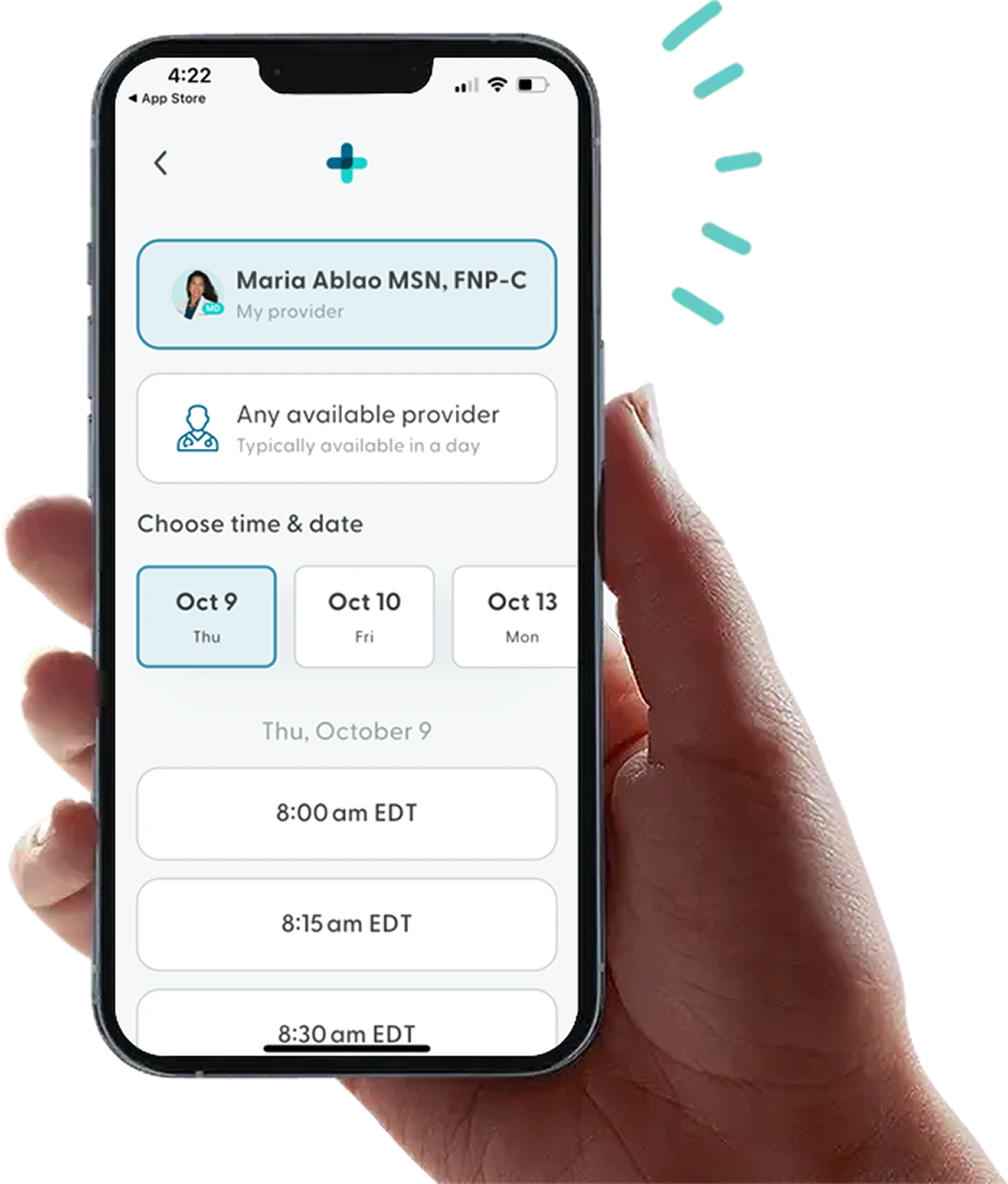Oral Syphilis: What Do I Need to Know?
What Causes Oral Syphilis?
Oral syphilis is a sexually transmitted infection. Like all other forms of syphilis, it’s caused by the bacterium called T. pallidum.
In the different stages of the disease, an active syphilis infection affects various parts of the body and it’s not limited to the mouth and lips.
A simple rule for syphilis spread is “rash causes rash.” This means that any area of the skin or mucous membranes (the lining inside of the mouth, and the moist parts of the nose, eyes, ears, genitals, and anus) affected by syphilis can cause it to spread to other people.
Take control of your sexual health today!
Don't wait. Schedule a confidential online consultation with an experienced medical professional.


How does oral syphilis spread in the primary stage?
In the first stage of syphilis – called the primary stage – syphilis causes a painless red lump or ulcer (called a chancre) on the genitals, anus, or mouth, depending on the area of the body where the infection occurred.
This ulcer is highly infectious and oral contact with it can cause oral syphilis in the form of a new ulcer. The contact can be mouth-to-mouth, mouth-to-genitals, or mouth-to-anus.
How does oral syphilis spread in the second stage?
In the second stage of syphilis — often referred to as secondary syphilis — the initial chancre is usually healed, or it’s in the final process of healing.
One of the symptoms of secondary syphilis is the so-called “snail track ulcer.” This ulcer appears as irregular red patches or reddish sores with grey-white mucous patches which may be painful. These syphilis sores are termed “snail tracks” because they look like the trail of slime a snail leaves behind.
Flat-topped, grayish wart-like rashes, called condylomata lata may also appear in the mouth during this stage.
The secondary stage of syphilis does not require oral contact with the affected area of the body for it to spread.
Instead, the syphilis transmission will be from the site of the initial infection to the mouth where it causes a sore. The primary infection can be caused by oral sex, mouth-to-mouth contact, and vaginal or anal sex.
What are the Other Types of Syphilis?
Other forms of syphilis include the following:
- Neurosyphilis (brain and spinal cord)
- Otosyphilis (ears)
- Cardiovascular syphilis (heart and blood vessels)
- Ocular syphilis (eyes)
- Syphilitic hepatitis (liver)
- Joints (syphilitic arthritis) and bones
- Congenital syphilis (infants born with a syphilis infection)
How Common is Oral Syphilis?
Not everyone who is infected with syphilis will experience oral symptoms.
Research shows that around four to 12% of patients who have primary syphilis, have oral chancres on the lip, tongue, and other parts of the mouth.
These oral lesions are usually painless and resolve on their own within three to eight weeks with or without treatment.
If no treatment is given, however, people with these sores may develop secondary syphilis.
Oral syphilis caused by the secondary stage of the disease typically appears as multiple sores in or around the mouth.
These sores are usually accompanied by other symptoms around the body such as rashes on the palms, soles, and genitals, hair loss, flu-like symptoms, or enlarged glands.
The typical snail-track-shaped rash occurs in about 30% of patients. Less commonly, condylomata lata may appear in the mouth.
What are the Risk Factors for Oral Syphilis?
Because syphilis is a sexually transmitted infection, risky sexual behavior increases your chances of contracting it. Here are some risk factors for oral syphilis:
Unprotected sexual contact – including anal, oral, or vaginal sex
Having multiple sexual partners
Oral contact with infected rashes, sores, or ulcers
Being infected with HIV
How Do I Treat Oral Syphilis?
Oral syphilis is typically present with primary or secondary syphilis; therefore, the same treatment applies. A single shot of Penicillin G into the muscle of the buttocks is usually given to cure oral syphilis.
Alternatively, doxycycline, an oral medication, can also be used for 14 days if you are allergic to penicillin. The latter treatment is, however, less effective.
How Do I Prevent Oral Syphilis?
Oral syphilis is preventable. Here are some things you can do to protect yourself and your partner from infection:
Use barrier protection, such as condoms or dental dams (sheets made out of material similar to condoms that act as a barrier between the mouth, anus, or vagina during oral sex)
When receiving treatment for any sort of syphilis, advise your partner to also seek treatment
Avoid sex with anyone who has an active infection
Do not engage in sexual activities until both you and your partner have completed treatment
Avoid having multiple sexual partners
Where Can I Learn More About Treatments for Oral Syphilis?
Do you have a sore or a rash that’s bothering you? Are you concerned about you or your partner possibly having been exposed to syphilis? LifeMD can help. Early diagnosis can help you get the treatment you need.
Join LifeMD today to get 24/7 access to healthcare providers — plus same-day prescriptions when you need them.
More articles like this
Feel better with LifeMD.
Your doctor is online and ready to see you.
Join LifeMD for seamless, personalized care — combining expert medical guidance, convenient prescriptions, and 24/7 virtual access to urgent and primary care.











